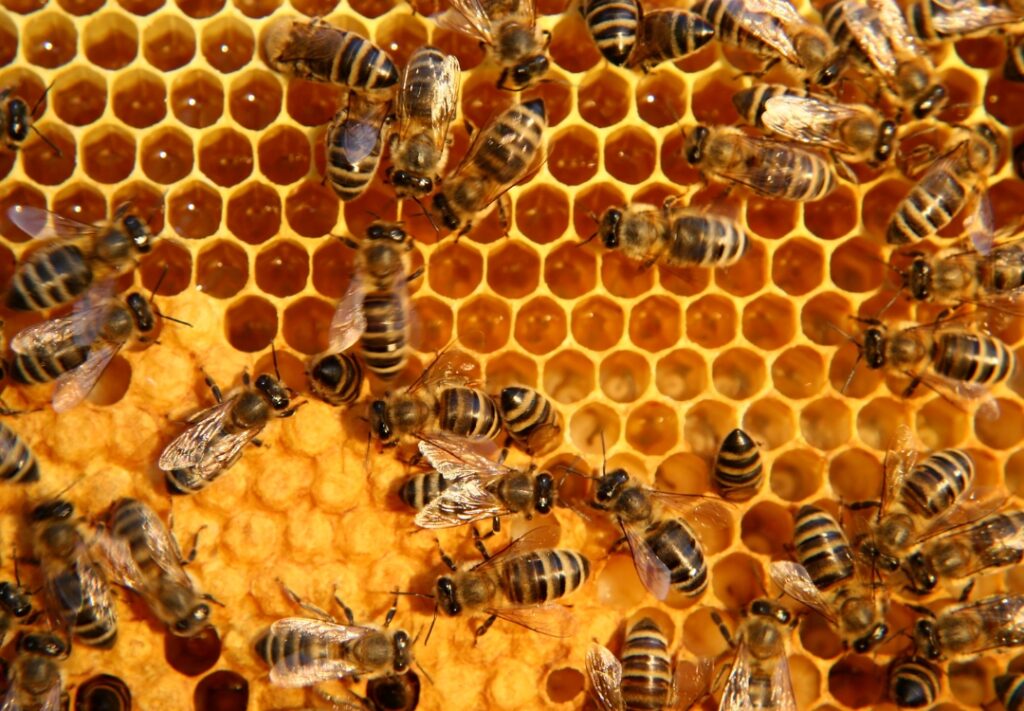An Exploration of Beehives and Honey Production

Nature’s Honey Factories
Bees are fascinating creatures, tiny architects that build complex hives and produce the delicious honey we consume.
These small, yet powerful, workers play a crucial role in maintaining biodiversity and global agriculture.
Within the hives, we find an organized and highly productive world. Each bee has a specific function, contributing to the harmonious functioning of the hive and honey production.
Let’s delve deeper into this incredible process and understand the importance of these fabulous “honey factories” in nature.
Get ready for a curious and exploratory journey into bees and honey production.
Discover how these small creatures impact our lives in ways you never imagined. Continue reading to marvel at the secrets of the hives and the benefits of natural honey.
1. Importance of Bees
Bees play a vital role in pollination, which is essential for the production of many foods we consume daily.
They pollinate approximately 75% of cultivated plants and nearly 90% of wild plants, helping to keep ecosystems balanced and productive.
2. Structure of the Hive
The hive is a model of organization and efficiency. It is composed of wax combs, where bees store honey, pollen, and brood.
Each hive has a queen, workers, and drones, each with specific functions.
The queen lays eggs, the workers take care of nectar collection and honey production, while the drones are responsible for reproduction.
3. Honey Production Process
Honey production is a fascinating and laborious process. Bees collect nectar from flowers and store it in their hives.
The nectar is then transformed into honey through a process of dehydration and the addition of enzymes.
This honey is stored in combs and sealed with wax for preservation.
4. Benefits of Natural Honey
Natural honey is a nutrient-rich food with antibacterial and antioxidant properties. It can be used as a natural sweetener, a home remedy for various conditions, and also in beauty products.
Regular consumption of natural honey can contribute to better health and well-being.
5. Bee Conservation
Unfortunately, bees are facing several threats, such as pesticides, habitat loss, and climate change.
The conservation of bees is crucial for the continuity of pollination and food production.
We can help by planting native flowers, avoiding the use of pesticides, and supporting sustainable beekeeping practices.
Conclusion:
To conclude the “Nature’s Honey Factories” topic, we can say that bees are essential for life on Earth. Without them, many of the foods we rely on would not exist.
Valuing and protecting bees and their habitat is a responsibility we all must share.
Frequently Asked Questions:
Advance to the next page to see the most relevant questions on this topic; many questions may answer your doubts.


